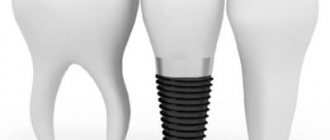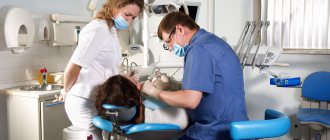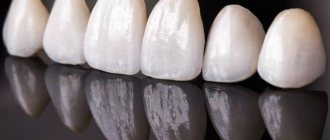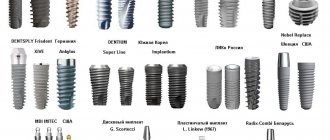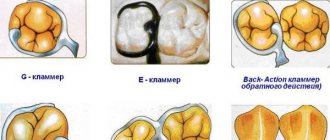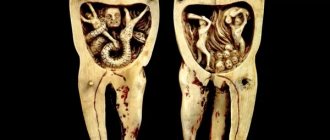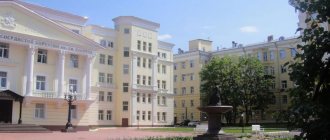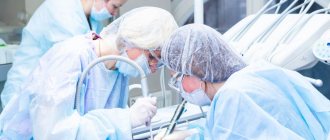There are a number of countries whose health services really pay a lot of attention to caring for the dental health of the population and offer dentists the best working conditions. These countries are ready to pay specialists more, therefore, many young (and not only) dentists are thinking about moving.
So if you are a dentist who wants to change environment/country/citizenship, move to a metropolis, rural area or, for example, closer to the beach, you should study this list.
The results below are based on the average annual salary for a dentist in a given country. Let's start with an honorable tenth place.
Australia
The average annual salary for a dentist is $73,600. In Australia, dentistry is one of the best sources of income in medicine. The Dental Council of Australia oversees dentistry in the country. To practice there, you must obtain a license and registration from this board. However, they will not grant registration to an international graduate until he or she has passed the ADC exams or completed two years of training and education at a local accredited dental school.
What conditions have long been available in your homeland?
Many patients are interested in which country is better for dental treatment. In fact, experts believe that this can be successfully done almost anywhere in the world, including, of course, in Russia. But, of course, not in every clinic.
Sometimes it is better to choose a good specialist in your homeland
Today there are domestic dentistries that meet international quality standards. In them you can get services and conditions that were previously considered unique, which is why some patients sought treatment abroad. Let's list these points:
- carrying out procedures under anesthesia or sedation,
- one-stage dental implantation immediately after extraction or one-stage with a lack of jaw bone tissue and periodontitis, with fixed prosthetics in a short time,
- the entire necessary set of medications and care products immediately after treatment,
- turnkey treatment
- 3D technologies[1] and digital diagnostics, optical technology (microscope), laser, smile modeling programs: all this ensures the accuracy of treatment and reduces the risks of complications. Using modeling programs, you can see the result even before the start of dental procedures,
- escort of out-of-town patients, transfer, hotel accommodation,
- the presence of a personal manager or curator responsible for working with each specific patient, always remaining in touch and resolving important issues,
- comfortable environment, complete sterility,
- service maintenance.
All this is available today in advanced clinics not only abroad, but also in Russia. For patients from the regions, it is easier to come to Moscow than to fly abroad, where the level of medicine today is no different at all.
The experience of a famous blogger about how all-on-4 implantation works at Smile-at-Once and why treatment in Russia is more profitable in all aspects than in the USA!
“My aunt has been living in Canada for 15 years. She talked about how teeth are treated abroad. It is insanely expensive even for local residents, not to mention visitors. And the attitude there is purely formal, everything is strict, but here in Russia it’s very soulful! But the quality in both places has long been equal. She and her husband, in order to save money, come to us for treatment in Moscow, and are always very happy!”
Maria R., review from the dental portal gidpozubam.ru
Spain
The average annual salary for a dentist is as much as $176,000. This is a significant difference compared to other countries. It's no surprise that more and more dentists are moving to Spain. Not only are salaries almost double those of Switzerland, but the country has relatively low taxes and a lower cost of living. When it comes to money alone, Spain is obviously the best country to practice dentistry.
Of course, you should remember that average annual salary should not be the only factor in your decision to move. One must also take into account the cost of living, local culture and characteristics of potential patients, as well as the number of dentists per square kilometer in a particular region of the country.
Real advantages of treatment abroad
Those who go to have their teeth treated abroad usually receive the following positive aspects:
- the opportunity to tell your friends that you underwent procedures not in your home country: for some, this is a reason to once again emphasize their rather high financial position and boast,
- a way to combine business with pleasure: see the world and improve your health.
On a note! As noted above, most often patients go abroad for dental implantation and prosthetics, as well as procedures that require surgical intervention. Many people also use the services of aesthetic dentistry: they get veneers and lumineers.
Important Disadvantages to Consider
If you are deciding in which country to have your teeth done and are considering, for example, Europe, America or Asia, pay attention to the following nuances:
- language barrier: of course, in a good dentistry you will be provided with a translator, but this still will not allow you to keep abreast of all events and establish direct contact with your doctor. Do not forget also that some important information may be distorted during translation; in the worst case, they will not tell you something,
- additional expenses for travel and accommodation: flights, travel, fuel surcharge, visa, passport, hotel accommodation, food. As well as entertainment and sightseeing - how could you live without this in another country? And if you sit within the four walls of your room all the time in order to save money, then the meaning of traveling abroad is completely lost,
- high cost of services: if you want treatment to be carried out by a truly experienced doctor with extensive experience and recommendations, then you will have to pay a tidy sum for this. Today it is much cheaper to treat teeth in Russia, where equally experienced specialists work, and, to the delight of the patient, their remuneration system is somewhat different,
- lack of medical insurance in the country where the Russian patient is going to undergo treatment,
- change of time zones and different climate: some people react especially sensitively to such changes, which is why their immunity drops, their general health worsens, their body temperature may rise, gastrointestinal upset occurs - all these are not the best conditions for quality treatment. Deterioration in health may lead to the need to change plans, undergo dental procedures, or subsequently encounter complications,
- unforeseen circumstances: for example, patients with chronic diseases may urgently need help, hospitalization, etc., for which they will again have to pay a lot of money,
- the need for repeated visits to the clinic: implantation and prosthetics cannot in all cases be carried out in one visit to the dentist,
- If complications arise, you will have to prove your truth and seek justice through the courts: this is a long and, again, costly undertaking.
What may be the results of dental treatment abroad?
“I was planning to go abroad on vacation and at the same time I was considering the possibility of getting lumineers there, like Hollywood actresses have. I thought that was the only place where the originals could be found. When I began to study this issue more closely, I found out that originals are also supplied to our country. Both templates and those created from jaw casts. True, not to all clinics, but only to licensed ones, which is quite easy to check today. This forced me to change my decision. I went abroad simply to enjoy my vacation to the fullest and without worries. And already at home I was thinking about how to make my own teeth.”
AR/Teeny, review from yell.ru
Another significant disadvantage that many patients are not aware of when deciding which country is better to have their teeth done is the lack of opportunity to return 13% of the amount spent on treatment abroad. This small but pleasant bonus can only be received if an officially employed citizen of the Russian Federation is treated in his homeland.
From veneers to braces
Getty Images
The three most popular aesthetic procedures in dentistry today are dental restoration, whitening, and veneers. They account for 29%, 28% and 26% of all “cosmetic” dental services, respectively (according to the American Academy of Cosmetic Dentistry. - Forbes Woman
). Other important procedures that also fall under the umbrella of aesthetic dentistry include the installation of implants and crowns, bridges, orthodontics (primarily braces) and even maxillofacial plastic surgery.
Interestingly, aesthetic dentistry is approximately equally popular in all age groups, although the top category of patients are people from 41 to 50 years old, followed by people 31–40 and 51–60 years old. “Even 10 years ago, only teenagers came for beautiful smiles, or rather, mothers brought their children. Now more and more people after 30–35 want to become our patients,” says Irina Erilina, chief physician of the dental and 3rd clinical departments, a doctor of the highest qualification category at Meditsina JSC.
Advertising on Forbes
Overseas approach
Thanks to constantly improving technologies, fabulous investments in the innovative development of implantation systems, equipment and materials, foreign clinics are able to offer a long list of services, including:
- prosthetics;
- implantation;
- smile correction;
- treatment of caries, periodontal disease.
The main emphasis is on the following factors:
- quality;
- affordable prices;
- modern equipment;
- the latest materials.
In dental offices, each client who seeks help is treated with care and respect; doctors find an individual approach.
Attentive service from the staff, a friendly and understanding attitude towards foreign clients is the key to the success of foreign clinics.
Visitors to dental centers are offered:
- consultation on current promotions and special offers, regarding the list of services provided;
- while waiting for the doctor, patients are treated to coffee or tea;
- free booklets;
- trial procedures.
The main differences between dental implantation in foreign countries and the Russian Federation are quality assurance and safety . In dental clinics in Russia, the price-quality ratio is not always fair.
International systems and standards, as well as modernized equipment, are borrowed by Russian medical centers to improve the quality of services provided . At the same time, foreign countries offer dental services that are not available in Russia.
Only those Russian dentists who work in a prestigious dental clinic have international experience. Such medical institutions are located in the largest cities of Russia. The cost of services there is very high.
Restoration of chewing function using intramucosal implants and features of their structure. Come here if you are interested in the design of SuperLine implants.
At this address https://dentist-pro.ru/implantaciya/proizvoditeli/csm/nedorogimi-yuzhnokorejskimi.html you will find objective reviews about CSM implants.
Indications for surgery
- Missing one or more teeth in a row.
- Complete absence of teeth on one or both jaws.
- Absence of one or more chewing teeth in a row.
- Problems with the jaw closing tightly.
- High degree of tooth enamel wear.
- A tooth that is more than two-thirds destroyed.
- Inability to install a removable prosthesis.
However, there are also contraindications:
Absolute contraindications
- Blood diseases.
- Diseases of the vegetative-vascular system.
- Disturbances in the functioning of the central nervous system.
- Presence of HIV infection.
- Tuberculosis.
- Various diseases of the mucous membrane, for example, gingivitis, stomatitis and pemphigus.
- Bruxism is teeth grinding that mainly occurs during sleep.
- Endocarditis and arthritis.
General contraindications to implant installation
- Acute mental disorders such as schizophrenia and epilepsy.
- Prolonged stress.
- Severe exhaustion of the body.
- Intolerance to anesthesia.
- Poor condition of the oral bone tissue.
Relative contraindications
- The patient's age is up to 16 years.
- Bone tissue defects.
- Pregnancy.
- Alcoholism, drug addiction and smoking.
- Pathological bite defects.
- Inflammatory processes of the gums.
- Inflammation of the tissues surrounding the teeth.
- Poor oral hygiene.
How much does dental implantation cost in Russia?
In Moscow, the cost of such an operation is about 25,000-35,000 rubles, if we are talking about an “economy” prosthesis. For installation of a “premium class” implant you will have to pay from 55,000 to 100,000 rubles.
In St. Petersburg, prices are not very different from Moscow. The average cost of such a procedure ranges from 21,000 to 30,000 rubles.
If you notice cheaper offers, then first of all you should check the reputation of this clinic and the licenses of the specialists working in it. In this case, it is very important not to run into scammers.
How to choose a dental clinic?
We offer a short guide for those who call or visit various clinics in order to find out “where, what and how much.” Try to find out the following about the company advertising itself:
- whether it owns the most modern equipment or works on relatively outdated ones. Both can be presented as foreign and called new;
- Does it use the declared technologies in full or in part? In the latter case, the quality of work decreases sharply;
- Are the materials of today's generation or those of yesterday used? The differences between them can significantly affect the efficiency of the work performed;
- Is a comprehensive diagnosis of the condition of the oral cavity carried out before any treatment, or does the doctor concentrate only on the patient’s complaints. The use of even the latest tools for local diagnostics does not allow us to see the problem in its entirety, understand its causes, predict the development of the disease and ultimately provide effective treatment;
- Does the company have dental specialists of various profiles on its staff - therapists, surgeons, orthodontists, periodontists, radiologists, or is it a narrow profile? The absence of an ensemble of specialists sharply narrows the vision of patients’ problems, often leading to cases of undertreatment;
- is the patient invited to discuss the recommended treatment plan, reflecting his complaints and the condition of the entire oral cavity, or does the doctor limit his attention to the symptoms indicated by the patient himself, seeking immediate income;
- Are reasonable warranty periods given, taking into account the patient’s problem, the scope of the treatment plan completed, the nature of the treatment performed, or are “average” terms acceptable to the customer issued for all cases?
Perhaps the reader thought that he was being offered a difficult task. How else? We must learn the basics of behavior in the services market, and wisely and profitably make a choice from what competitors offer. Ultimately, we need to raise the level of dental culture.
Sources
- Kugananthan S., Nguyen T., Patel J., Anthonappa R. Knowledge, experiences and attitudes of dental health professionals towards reporting child abuse in Western Australia. // Aust Dent J - 2022 - Vol - NNULL - p.; PMID:33450084
- Durey A., Hearn L., Lund S., O'Grady M., Slack-Smith L. Dental professionals' perspectives working with Aboriginal children in Western Australia: a qualitative study. // Aust Dent J - 2022 - Vol - NNULL - p.; PMID:33428775
- Thomas TK., Lenaker D., Day GM., Wilson JC., Holck P., Newman J., Bruden D., Hennessy TW. Using electronic dental records to establish a surveillance system for dental decay in rural Western Alaska. // J Public Health Dent - 2022 - Vol - NNULL - p.; PMID:33283270
- Cooper T., Schenberg K., Smith L., Bobinskas A. Oral and Maxillofacial Surgery and Oral Surgery—what's the difference? A Western Australian dental student survey. // Br J Oral Maxillofac Surg - 2022 - Vol58 - N10 - p.1276-1281; PMID:32921504
- Sah SK., Kandel S., Shrestha R., Atreya A. Prevalence of Selected Non-Metric Dental Traits in Indo-Nepalese and Tibeto-Nepalese Ethnic Groups of Western Hilly Region. // JNMA J Nepal Med Assoc - 2022 - Vol57 - N219 - p.323-326; PMID:32329457
- Alhadidi A., Alzer H., Kalbouneh H., Abu-Ghlassi T., Alsoleihat F. Assessment of the dental morphological pattern of living Jordanian Arabs suggesting a genetic drift from the Western-Eurasia pattern: A cone beam computed tomography study. // Anthropol Anz - 2020 - Vol77 - N3 - p.205-223; PMID:32198882
- Gokcek M., Durmuslar S., Kokturk F. Retrospective analysis of traumatic dental injuries in the western black sea region of Turkey. // Niger J Clin Pract - 2022 - Vol23 - N1 - p.84-90; PMID:31929212
- Balgi P., Katge F., Singh S., Jayaraman J. Comparative assessment to determine the accuracy of Demirjian and DARLInG methods of dental age estimation in western Indian children. // Leg Med (Tokyo) - 2022 - Vol42 - NNULL - p.101629; PMID:31759329
- Bratteberg M., Thelen DS., Klock KS., Bårdsen A. Traumatic dental injuries and experiences along the life course—a study among 16-year-old pupils in western Norway. // Eur J Oral Sci - 2019 - Vol127 - N5 - p.445-454; PMID:31228311
- Lietz J., Kozak A., Nienhaus A. Prevalence and occupational risk factors of musculoskeletal diseases and pain among dental professionals in Western countries: A systematic literature review and meta-analysis. // PLoS One - 2022 - Vol13 - N12 - p.e0208628; PMID:30562387
